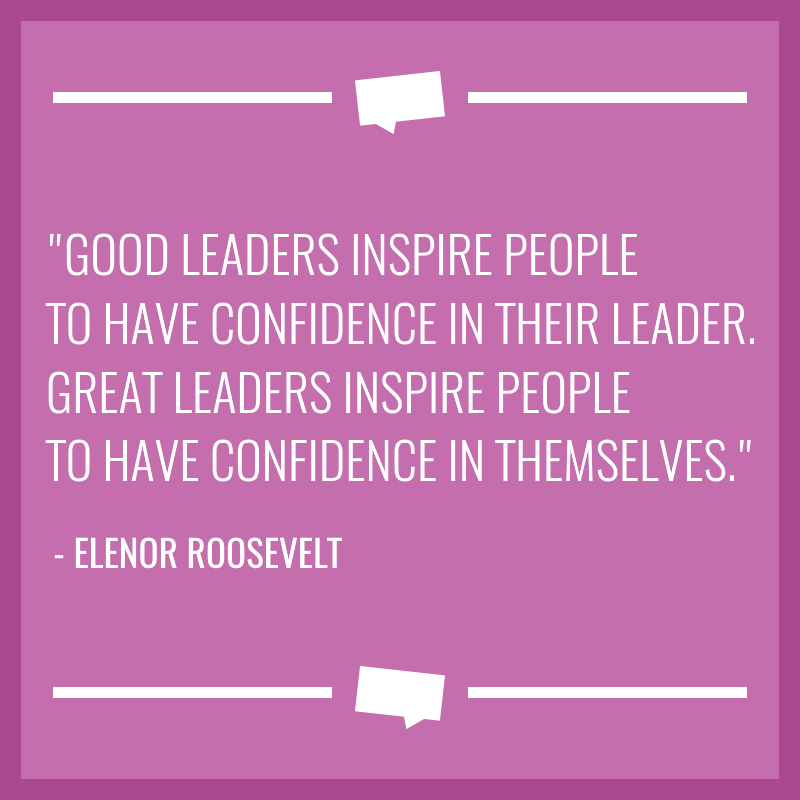 When did you last feel like a superhero? Perhaps it was winning that promotion, delivering a speech that wowed the crowd, or getting simple recognition for a job well done.
When did you last feel like a superhero? Perhaps it was winning that promotion, delivering a speech that wowed the crowd, or getting simple recognition for a job well done.
Whatever it was you probably felt pretty confident at the time. Confidence is one of the greatest feelings we can experience as human beings!
You know what I’m talking about – That feeling that you could move mountains, really make a difference, smile and the world would smile with you. This is the power of confidence! This is how it feels to have faith in ourselves, feel the potential in each moment and believe our actions matter.
The Oxford Dictionary defines confidence as “a feeling of self-assurance arising from an appreciation of one’s own abilities or qualities.” Sounds pretty awesome to me! This is the feeling you must nurture in your employees to unleash their potential and help your teams shine.
Why Your Team’s Confidence Matters
As leaders, it’s not just our own confidence that matters. We want to create confident teams that feel able and empowered to do their best work. This is important because when employees feel confident they are more engaged and more productive. It doesn’t take a rocket scientist to work out why; When we have faith in our abilities, we feel better able to make decisions, take action and are less fearful of failure.
The big question is, how do we create confident teams? More importantly, how do we make confidence a constant foundation of our teams’ success, rather than a fleeting feeling? The answer lies in the theory of self-determination.

Confidence at Work: Self Determination Theory (SDT)
Self Determination Theory (SDT) may sound dry but it’s powerful stuff! The theory, developed by Edward L. Deci and Richard M Ryan, states that we all have three core psychological needs that must be met for us to flourish and succeed. The big three are: ‘Competence’, ‘Autonomy’ and ‘Relatedness’.
These are three crucial characteristics of confident teams. But how do these characteristics work to inspire confidence, and how can you embed them in your team culture?
1. Competence
Confidence without competence is just plain arrogance! Real confidence is built upon a solid foundation of genuine ability. This is why competence is a core psychological need identified by SDT. Your team needs to be competent to feel assured of their abilities and do their job well. Therefore, constant learning is the key to creating confident teams! As long as your people are developing their skills and getting those ‘ah ha’ moments, their confidence will grow.
My Confidence Boosting Tip: Provide a personalised training solution that meets your team’s development needs. This ensures they have the skills required to do their job and feel confident in their role. You can use customised learning pathways to guide employees to training content that best suits their personal needs. This ensures they are always offered the relevant training that fits their current ability level, engages their interest and supports their growth.
2. Relatedness (social connections)
When it comes to self-confidence, friends at work matter big time! We all feel a little stronger when someone is cheering us on, lending a helping hand or reminding us of our strengths. In fact, research shows having just one close connection at work makes employees up to 50% happier. What’s more, people value feedback from colleagues with 75% saying peer-recognition is highly motivating. This is the power of close connections or relatedness at work!
With this in mind, it’s no surprise that relatedness is identified as another of our top three psychological needs. Social connections are crucial for confidence at work because they provide a strong support network, regular feedback from peers, and opportunities for social learning. Plus, we all need those close friends to keep us grounded when our confidence skyrockets!
My Confidence Boosting Tip: Formal training is important but it is not all there is to learning. Social learning is responsible for 20% of what we know. It refers to how we develop skills by learning from others. You can use social features on the LMS to encourage knowledge sharing among your teams. The discussion groups and message boards provide the perfect place for staff to ask subject matter experts for advice and celebrate each other’s success.
3. Autonomy 
Once you know your team have the skills, training and support network in place to excel, it’s time to let them get on with what they do best – their job! Autonomy is identified as the third psychological need in SDT and it’s essential for creating confident teams. Your team will feel more confident if you give them autonomy and show you have faith in their abilities. So, stand back and empower your team to do their best work.
My Confidence Boosting Tip: Autonomy is the freedom of choice. This means we must give our teams a choice over how they work. One of the best ways to achieve this is by creating a results-focused culture. Instead of prescribing how your teamwork and demanding over-zealous progress reports, simply agree on weekly goals together. Review progress at the end of each week. Here at Growth Engineering, we use a bottom-up performance system called 5x5s to set and monitor our weekly objectives. Read more about 5x5s here and give it a try!
There you have it – the three crucial ingredients needed to create confident teams! Now, all that’s left for you to do is have confidence in your team’s abilities and unleash their inner superheroes!
These themes and more are explored further in my upcoming book about Unleashing Superheroes in your organisation. Sign up to our blog below to stay up to date on all the juicy details.








